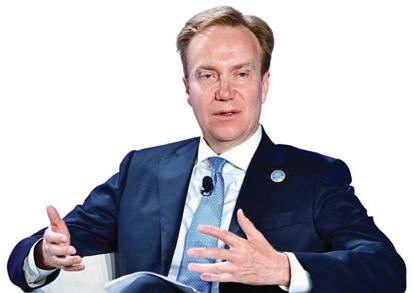We're planning our annual meeting against the most complex geopolitical backdrop in decades. I think that will continue into 2025. In a way, we are in a geopolitical recession. Fortunately, it hasn't impacted the global economy as badly as it could have. We're still expecting more than 3% growth. Provided there are no further escalations of conflicts and new crises, we have to expect that 2025 will be, similarly to 2024, a challenging geopolitical year.
What does “geopolitical recession” mean?
It means that we are in a polarized, fragmented world where we see less cooperation than in the past, and more competition. There is more focus on national interest. That is a challenge, as many of the biggest problems we face need global solutions.
This will be a critical year for the future of Europe. Where do you see the opportunities for the E.U.?
I think we are at a 1918, 1945, 1989 [type of] inflection point, in many ways, because we are between orders. We had one order. There is a new order on its way, but we don't know exactly where it is. There is a war going on in Europe, with Ukraine. A destabilized Syria could have huge impact on Europe. It will be critical that we don't see Syria ending up in sectarian wars again, but that there can be an agreement on an inclusive way of governing the country, moving forward. Europe is also at an inflection point economically and will need to decide on how to increase its competitiveness. It is not black and white. Spain is now the fastest-growing of the OECD economies. Greece is one of the fastest-growing European economies too. And the euro is still the second most important currency in the world. But the two biggest continental powers have real challenges. Germany, more on the economy side, and France, more on the political side.
What does President Donald Trump's election tell you about what that future order will look like?
I think Presi...


